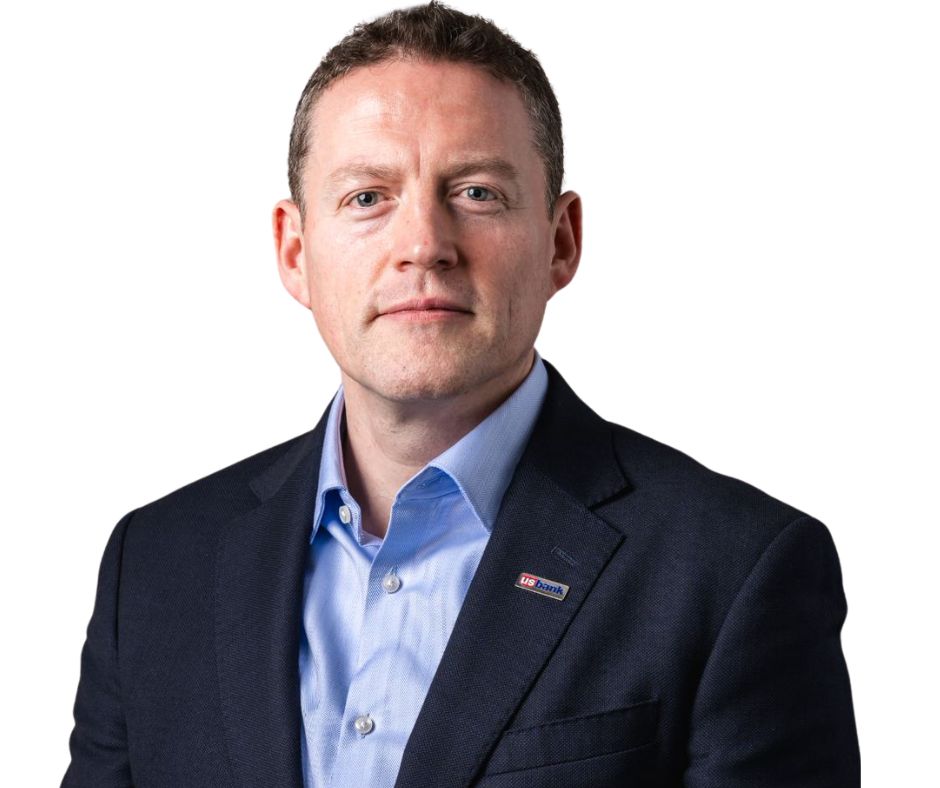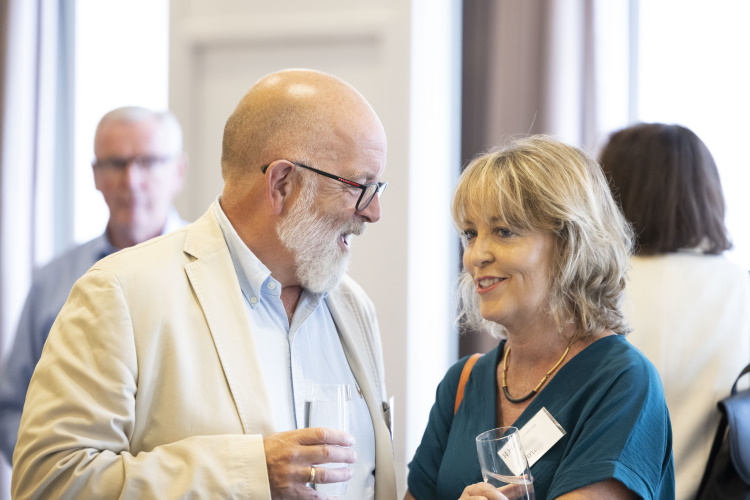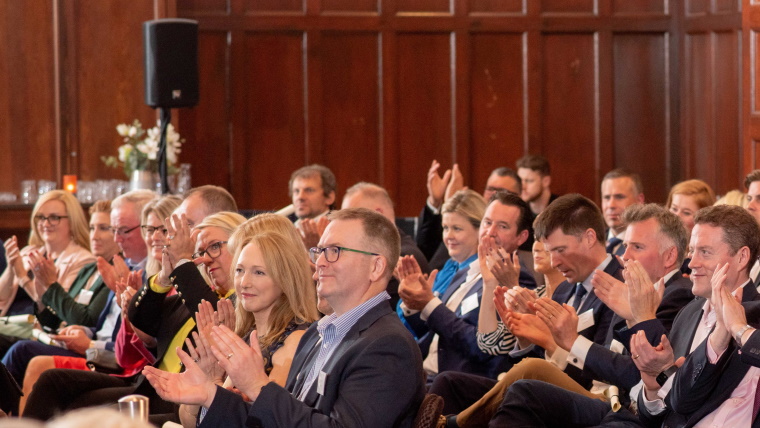
Stephen Groarke CDir
Chief Financial Officer and Executive Director, Elavon Financial Services
Stephen has worked in financial services for 26 years in roles encompassing finance, risk, treasury and operations.
He is a qualified accountant, risk manager, Certified Bank Director, and Chartered Director. Prior to his current role, he was Chief Risk Officer and Executive Director at Permanent TSB. In his current role, he is Chief Financial Officer and Executive Director of Elavon Financial Services. Elavon Financial Services is a wholly owned subsidiary of U.S. Bancorp and offers Payment Services solutions and Investment Services solutions across its European footprint.
What is the most important lesson, from your personal or business life, that has guided you the most in being a business leader?
Finding challenges along the way, even very tough ones, is part of life, whether in our personal or business lives. When that happens, try to be the calm person in the room and be there to help everyone else. It’s also when you can see the very best of people’s character – if you see those types of positives, especially in tougher times, then you know that you’re with the right people.
Is there someone who has had a major impact on you as a leader? Why and how did this person impact your life?
I’ve had some great mentors through my career, and I might be doing them a disservice to single out just one, everyone from my parents whose business I worked in when I was much younger, to the leaders I’ve met through my career. It’s greatly important for us to try to learn from others, both in terms of their advice and counsel, as well as observing how they achieve when they are at their best. One thing that is almost always a common denominator is a strong desire to achieve through the people around us and in creating a positive environment to do that.
What is one characteristic that you believe every leader should possess?
Humility. It’s important for leaders not to fall into the trap of believing that their opinion or knowledge inherently carries greater weight just because of having attained the position they are in. It’s impossible for one person to have all the answers or all the required skills and knowledge and it’s much more rewarding for everyone in the team when everyone knows that their opinion counts, and their contribution really matters.
What are the biggest challenges and/or opportunities that you have seen over your career to date? And how did you help to overcome or/and optimise these?
The banking crisis which started in 2008 was very challenging for the industry globally and particularly for the industry in Ireland. Over the subsequent period I worked in roles in treasury, finance and risk and we were rightly challenged to rebuild from first principles and to best practice. While it was hard work, I learned an enormous amount which has been the foundation for my career since then.
How has your business evolved and adapted because of the events in recent years? Do you believe it has impacted your future business model?
In recent years, we’ve been part of a tremendous acceleration of the use of technology in business and society. Technology has enabled hybrid working and brought colleagues across continents much closer together. In our payments business we’ve seen an acceleration in trends towards electronic payments, particularly card-based payments. More recently, we’ve seen AI start to demonstrate its potential to be an important business tool. These trends are already changing business models and will continue to do so in the coming years.
How do you think business leaders can best prepare for the future?
It’s important for us all to take the time to have a personal plan and then use it as a reference to check how we’re doing. At the same time, we need to make sure that we’re open and ready for unanticipated opportunities. When we take the time to plan properly, it gives us a focus and sense of purpose that ensures that we’re much more aware of the opportunities around us. It also positions us better to take advantage of the unanticipated opportunities that will inevitably come our way.
What advice would you give to new or aspiring directors in Ireland?
Make sure you spend time thinking and learning about the different roles at Board; the distinction between the Chairman and the CEO; the difference between Non-Executive Directors and Executive Directors; and the role of the Board in overseeing Management. Getting these structures and distinctions right are at the heart of good governance.
In terms of contribution to Board, think about where you can make the biggest positive impact. As an Executive Director, it’s very valuable to hear a different perspective and to get a question or challenge that I or the team didn’t consider. Some of the best Non-Executive Directors interventions that I’ve seen have been a single insightful question which demonstrated an extra dimension or level that management could add to what they were doing.
And, of course, I would wholeheartedly recommend the IoD Ireland qualifications. I recently completed the Chartered Director qualification. The programme material is really well put together and I can’t speak highly enough about how well the programme is run. I’ve kept all the material knowing it is always there as a useful reference.
What do you particularly value from your IoD membership?
As well as the qualifications, courses, and seminars, it's a great organisation to help its members build and maintain their networks through the various events that are held. At the same time, it's reassuring to know that the Institute of Directors Ireland is on hand as a support to provide advice should members need it.

